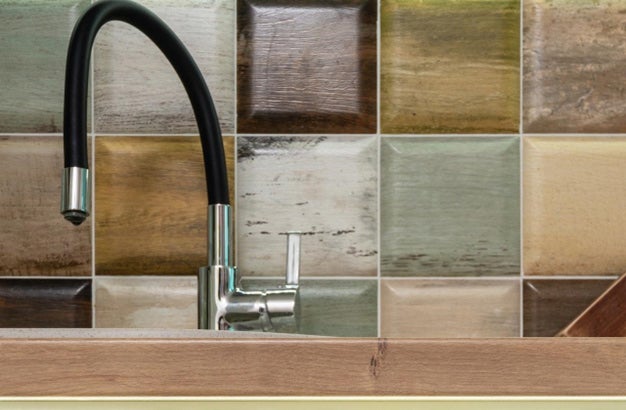Plumbing Emergency: What to Do Before the Plumber Arrives?

A plumbing emergency can be a stressful, but knowing what to do while waiting for a plumber can minimize damage and help you stay calm.
Chances are your evening plan didn’t include the toilet overflowing or the bathtub drain gurgling with dirty water. Yet, you find yourself standing in the bathroom, panicking about what to do next.
First, take a deep breath and clear your mind. Next, inform your plumber in Old Bridge about your problem. He won’t be knocking on your door the next minute, so there are a few things you need to do and fast.
The Plumbing Emergency Clean-Up
Before the plumber arrives, clear the area around the plumbing fixtures that need attention. Remove any objects, furniture, or items that may obstruct their access to the problem area. This will save time and help the plumber get to work right away.
Once the plumber is on his way, here’s what you need to do:
Shut Off the Water Supply
Locate the main water shut-off valve. In most households, it is usually located near the water meter, which is often situated near the front of your property or in the basement. In rare cases, it is either under the kitchen sink or near the water heater.
Use a wrench to turn it clockwise (to your right). This will stop water flowing to the affected areas and prevent further damage.
If you don’t find the valve in any of these places, give the plumber a quick call for help.
Turn Off the Electricity
Often, homeowners forget this little detail, which can put them in danger. If the plumbing emergency involves electrical appliances or outlets near water, switch off the electricity from the fuse box to reduce the risk of electrical shock.
Open Faucets
It’s important to relieve any pressure in the plumbing system. You can do this by opening all the faucets in your house, including cold and hot taps. Flush the toilets and clear outside spigots. This helps drain excess water from everywhere and reduces further leaks.
Contain the Leak
Try to identify the leak’s source. This will allow you to do damage control. Use pipe clamps, towels, or plumber’s tape to secure the leaking pipe. Understanding the issue can help the plumber address it more efficiently.
Try to Figure Out What Happened
Plumbing problems can be caused by age, obstructions, or simply the wear and tear of time. If you have a leak in your guest bathroom and suddenly hear a loud sound coming from behind the walls, it’s important to call a plumber to diagnose the problem.
The plumber will need to inspect your plumbing system to identify the cause of the leak and the banging noise. This may involve looking for signs of corrosion, rust, or other damage. The plumber may also need to ask you about the age of your plumbing system and the type of pipes you have. Once the plumber has identified the cause of the problem, they can explain their recommendation for repair or replacement.
If the leak and banging noise are due to a minor problem, such as a crack in a pipe, the plumber may be able to repair the pipe. However, if the problems are due to a more serious issue, such as widespread corrosion, the plumber may recommend replacing the pipes.
If you have any questions about the plumbing repairs, write them down. This ensures you don’t forget to ask important questions when the plumber is on-site.
Clean the Toilet
Plumbers deal with different kinds of plumbing problems daily. They have seen it all and are unbothered by it. However, decency says you clean the toilet before they arrive. It’s understandable if it’s the cause of the plumbing problem due to a blocked sewer line. It can be unpleasant to work in a bathroom with a toilet that has decal waste floating in it.
Ventilate the Affected Area
Plumbing systems can produce foul odors due to the decomposition of organic matter in sewage. That’s the first thing you notice when there’s a leak. Though it is a good reason to ventilate the area to keep your home smelling fresh, what’s more important is that it helps reduce the chances of mold and mildew building up in the area.
The first step in drying the area is to remove any standing water. Depending on the leak’s extent, you may need mops, buckets, or a wet/dry vacuum. Be thorough and ensure that no water is left behind.
Suppose the weather permits, open windows and doors to increase ventilation. You can also use fans to improve airflow. If the affected area is too big, use a dehumidifier. It works by extracting moisture from the air, accelerating the drying process. Place them strategically around the room, and empty the water reservoirs regularly.
Lastly, use a moisture meter to check for hidden moisture.
Once the plumbing emergency is resolved, discuss preventive measures with the plumber to reduce the risk of future problems. This may include regular maintenance and inspections of your plumbing system.
In conclusion, handling a plumbing emergency effectively involves taking quick action before the plumber arrives. This way, you can mitigate damage and ensure a smoother repair process. Remember, don’t forget to shut off the main water valve and electricity to stay safe.
Give Bob Hoegler Plumbing LLC. a Call
Even a small leak can do much damage to your home’s foundation. Call a plumber in East Brunswick as soon as possible before it gets worse. Bob Hoegler Plumbing LLC. provides emergency plumbing services in New Jersey. We are experts in various plumbing repairs, including leaks, toilets, water heaters, frozen pipes, drains, and more.
Request a plumber now by filling out our online form. Make sure to write a detailed account of your problem, and we will send out a plumber immediately. For more information, visit our website and browse our plumbing services. Call today at 732.595.2078.
RECENT POSTS
categories
Archives
2024
2023
2022
2021
2020
2019
- December (2)
- November (2)
- October (2)
- September (2)
- August (2)
- July (2)
- June (2)
- May (2)
- April (2)
- March (2)
- February (2)
- January (2)

